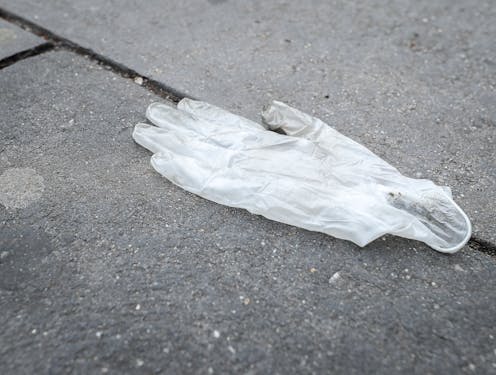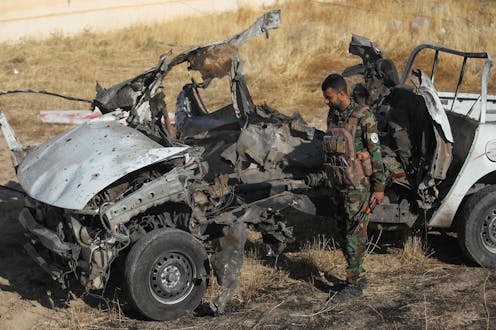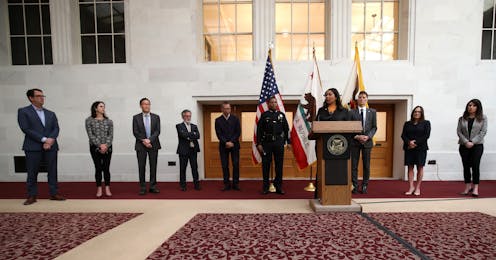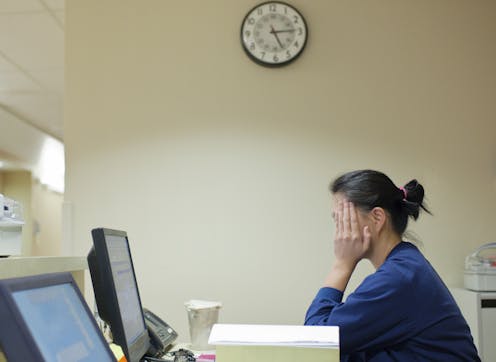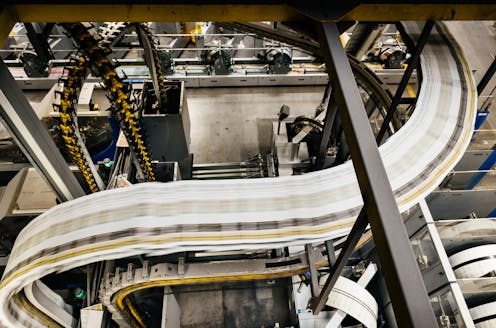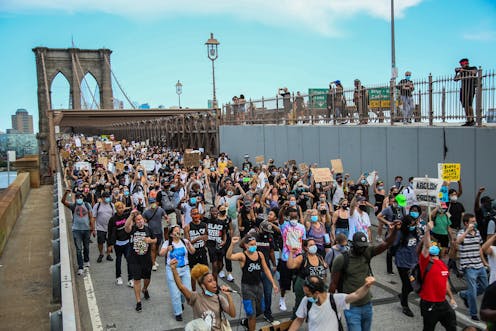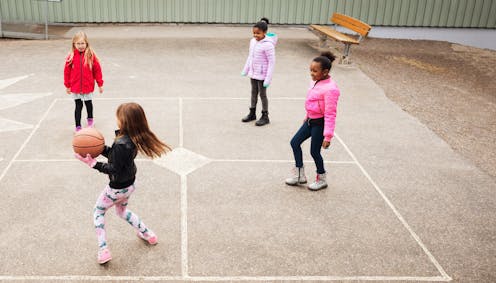
Playing together at school helps children learn.
Once children return to school for the first time since the coronavirus pandemic upended everything, they will most likely spend less time on school grounds. And as educational leaders decide how to schedule elementary school students’ days, they see catching students up on math, English and other academic subjects as a top priority.
In our view, helping students heal from the stress and trauma of what they have been through this spring is also essential. We are founding members of the Global Recess Alliance, an international group of health and education experts who came together in the pandemic to advocate for saving school recess.
We believe that leaving recess out of the school day could hurt elementary school students. Along with our colleagues in this field, we have found clear evidence that children will need a chance to play during recess more than ever when schools open their doors. Here are five main benefits from recess:
1. Getting time to play
Young children learn important skills like collaboration and conflict resolution by playing with each other. Physical activity is important for health, but also because it helps children to pay attention in class and learn. Since recess is essential for children’s well-being, the American Academy of Pediatrics recommends all schools offer recess every day, and that adults not withhold recess as punishment or to make up missed school work.
Unfortunately, just 11 states required daily recess as of 2018. And only 15 more mandated any amount of physical activity during the school day. Of states that require recess, most follow CDC guidelines of at least 20 minutes per day, with an average amount of 27 minutes per day for recess.
2. Healing from stress and trauma
When children experience stress and trauma, it’s hard for their brains to support thinking and reasoning. We would expect putting pressure on children to make up for all they did not learn while schools were closed before they’re ready to prove counterproductive.
That’s one reason why the American Academy of Pediatrics notes that children will need time to heal from the stress and trauma of the coronavirus pandemic before they will be ready to focus on their studies.
Elementary students also learn important life lessons through recess. As they play active games or create their own imaginative activities, they may be getting the hang of controlling their emotions when things don’t go their way, sharing, resolving conflicts and feeling empathy for their classmates. These aren’t just significant on their own. Developing these kinds of social and emotional skills makes children become better learners.
3. Overcoming disparities
Children of color and those residing in low-income, urban areas have the least scheduled recess in the nation. About 76% of students in elementary school in higher-income families regularly get recess, versus 58% of low-income children.
These same children have borne the brunt of the pandemic’s health and economic consequences, with many experiencing food insecurity and other economic hardships while their families struggle to keep their jobs and access adequate health care. Some of these same young people, especially black children, are now reeling from fear and anger in their communities from the police violence and racial injustice that has fueled protests nationwide. We believe that turning to play for healing during this emotionally difficult time will help children shift from stay-at-home to back-to-school mode.
4. Connecting with peers
What children have missed during a period of remote learning and canceled summer activities is being able to see their friends. When they return to school, they may not have seen their school friends for quite some time. They will also come with different levels of ability to control their emotions and outbursts. Based on what we’ve seen in the past, we expect that reducing pressure and providing students with ample time to reconnect with their friends is an important way to transition back to school.
5. Spending time outside
Scientists have determined that the coronavirus spreads less through contact with others when people are outdoors. Where space is available for outdoor recreation or learning, schools should take advantage. Recess need not involve shared equipment or play structures that could conceivably get infected, but we do think it’s wise for outdoor spaces to be equipped with enough sanitizer dispensers or sinks with soap, so that everyone can quickly clean their hands when playtime is over.
[Get facts about coronavirus and the latest research.Sign up for The Conversation’s newsletter.]
Rebecca London receives funding from the Robert Wood Johnson Foundation. She is Adjunct Fellow in K-12 Policy at the Public Policy Institute of California.
William Massey receives funding from the S.D. Bechtel Jr. Foundation and Playworks Education Energized.
Authors: Rebecca London, Assistant Professor of Sociology, University of California, Santa Cruz
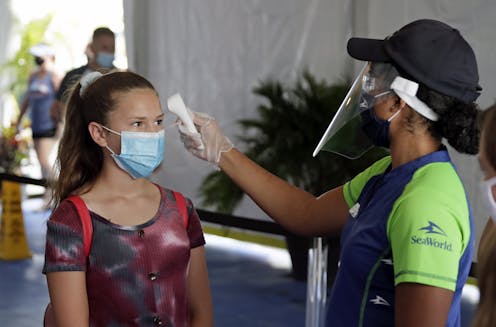 Screening for symptoms can catch some cases of COVID-19, but about people who are infected but not showing any symptoms?AP Photo/John Raoux
Screening for symptoms can catch some cases of COVID-19, but about people who are infected but not showing any symptoms?AP Photo/John Raoux

